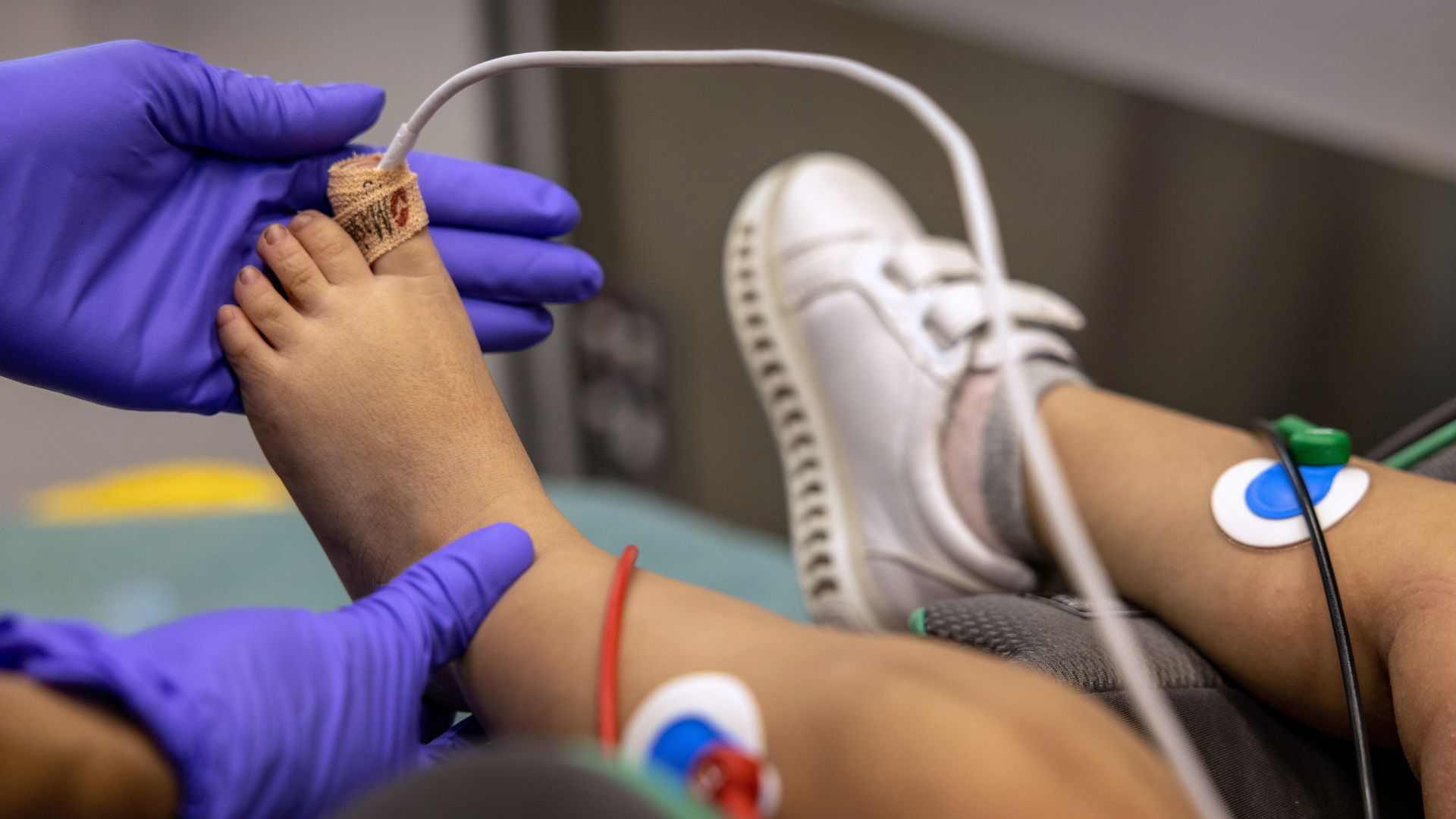Plus: Window for finding COVID's origin closing | Thursday, August 26, 2021
| | | | | | | Presented By PhRMA | | | | Axios Vitals | | By Tina Reed ·Aug 26, 2021 | | Welcome Vitals readers. Today's newsletter is 678 words, or a 3-minute read. Situational awareness: U.S. COVID hospitalizations topped 100,000 for first time since January, Axios' Rebecca Falconer reports. That's up from 53,529 on Aug. 1, per the Wall Street Journal. | | | | | | 1 big thing: COVID cases soar, especially in the South |  Data: N.Y. Times; Chart: Kavya Beheraj/Axios New coronavirus infections continue to rise across the U.S., perpetuating a preventable wave of suffering that's already straining hospitals and killing an average of 1,000 Americans per day, Axios' Sam Baker reports. The big picture: The biggest increases are happening primarily in a cluster of states where vaccination rates are low and safety measures like masks are spotty. By the numbers: The U.S. is now averaging over 150,000 new coronavirus cases per day — a 22% increase over the past two weeks. What's happening: In general, the states with the lowest vaccination rates are now seeing the biggest growth in new infections, and many of those same states are so overwhelmed with seriously ill COVID patients that they're running out of ICU beds. - All of the available real-world evidence continues to show that the vaccines prevent serious illness extremely well. The overwhelming majority of people sick enough to be in the hospital are unvaccinated, as are almost all of the people who die from their infections.
Share this story. |     | | | | | | 2. It's unclear whether vaccine penalties will work |  | | | Illustration: Sarah Grillo/Axios | | | | The decision by Delta Air Lines to charge unvaccinated employees an extra $200 per month for health insurance signals that rewards alone aren't doing enough to measurably increase COVID-19 vaccinations, Axios' Bob Herman writes. What they're saying: "The average hospital stay for COVID-19 has cost Delta $50,000 per person," CEO Ed Bastion said in a statement. - "This surcharge will be necessary to address the financial risk the decision to not vaccinate is creating for our company."
Why it matters: Employers are playing a central role in getting more people vaccinated, but it's unclear how much these types of penalties will help. Federal law allows employers to charge higher health insurance premiums to workers based on a health factor only if that factor is within a "wellness program," according to Georgetown University health insurance expert Sabrina Corlette. Yes, but: "Most [wellness] programs do not work," health policy researchers wrote in 2017. "Some raise serious legal concerns." Between the lines: The policy might not even affect all Delta employees, based on a closer read of the company's language. Go deeper. |     | | | | | | 3. The risk of COVID drags on |  | | | Illustration: Aïda Amer/Axios | | | | Vaccinated Americans are facing a disheartening reality: Even after getting the shot, they'll have to live with some level of risk from the coronavirus for the foreseeable future, Axios' Caitlin Owens reports. State of play: A glut of data released over the past few weeks supports the idea that the vaccines' effectiveness against infection begins to wane within about six months of vaccination, although it remains effective against severe disease. At least until we get a booster, we all have to figure out how to live our lives knowing that our vaccines are imperfect at keeping us from getting sick, but work very well at keeping us alive and out of the hospital. - That's very normal for vaccines, experts say, and may remain true even with boosters.
- "Where the public got spoiled here was the response to the mRNA vaccines was so strong" that it gave people protection against infection, "which was a welcome bonus," said Cornell virologist John Moore. "That was unexpected and very welcome, but it wasn't normal."
|     | | | | | | A message from PhRMA | | Americans reject government negotiation in Medicare | | |  | | | | Fact: 65% of Americans oppose Medicare negotiation when it leads to tradeoffs like limits on people's access to medicines or less R&D of new medicines. Get the facts on why Congress should abandon Medicare negotiation proposals and how they could have devastating consequences for Medicare enrollees. | | | | | | 4. The dwindling chances of finding COVID's origin |  | | | Chinese police stand outside the Wuhan Institute of Virology as WHO staff visit on Feb. 3. Photo: Hector Retamal/AFP via Getty Images | | | | It appears less and less likely we'll ever be able to pinpoint the origins of COVID-19, Axios' Bryan Walsh reports. - A U.S. intelligence review into the origins of COVID-19 has reportedly proved inconclusive.
- WHO experts warn that time is running out to do further studies.
Why it matters: We don't need to know how COVID-19 emerged to finally defeat the pandemic, but clearer answers will help prevent the next big outbreak — whether it comes from nature or human action. Read more. |     | | | | | | 5. Pic du jour: Little COVID patient |  | | | Photo: John Moore/Getty Images | | | | An EMS medic from the Houston Fire Department prepares to transport a COVID-19-positive girl, age 2, to a hospital in Houston. |     | | | | | | 6. Catch up quick | - A Nebraska nursing job is touting the lack of a vaccine requirement in recent hiring ads. (Associated Press)
- Tech-powered mental health companies Headspace and Ginger announced plan for $3B merger (Fast Company)
- Democrats are eyeing a new federal coverage program in states that have declined Medicaid expansion. (The Hill)
- Stark maternal health inequities persist in the U.S. (CNN)
|     | | | | | | A message from PhRMA | | Americans reject government negotiation in Medicare | | |  | | | | Fact: 65% of Americans oppose Medicare negotiation when it leads to tradeoffs like limits on people's access to medicines or less R&D of new medicines. Get the facts on why Congress should abandon Medicare negotiation proposals and how they could have devastating consequences for Medicare enrollees. | | |  | | It'll help you deliver employee communications more effectively. | | | | | | Axios thanks our partners for supporting our newsletters. If you're interested in advertising, learn more here.
Sponsorship has no influence on editorial content. Axios, 3100 Clarendon Blvd, Suite 1300, Arlington VA 22201 | | | You received this email because you signed up for newsletters from Axios.
Change your preferences or unsubscribe here. | | | Was this email forwarded to you?
Sign up now to get Axios in your inbox. | | | | Follow Axios on social media:    | | | | | |









No comments:
Post a Comment